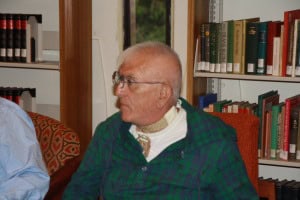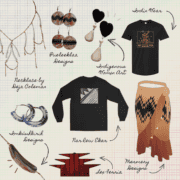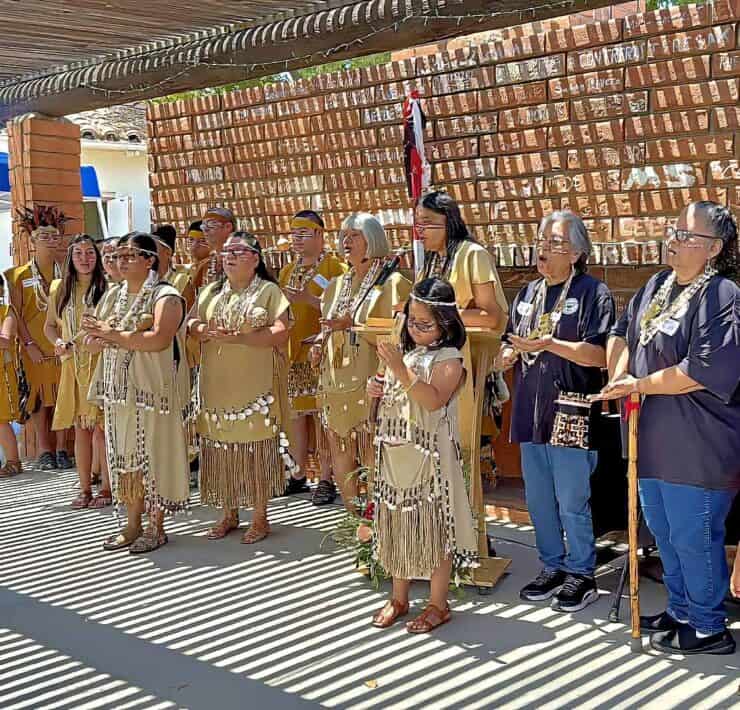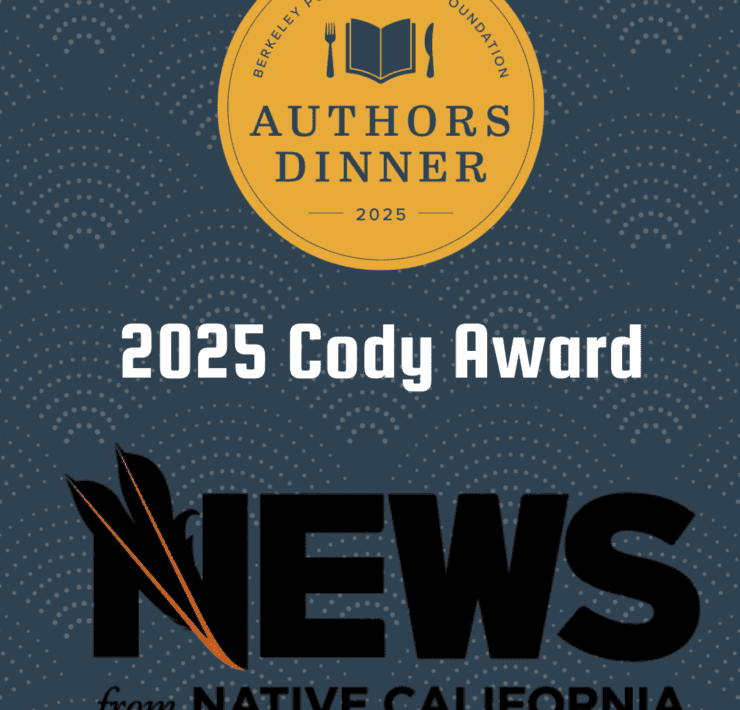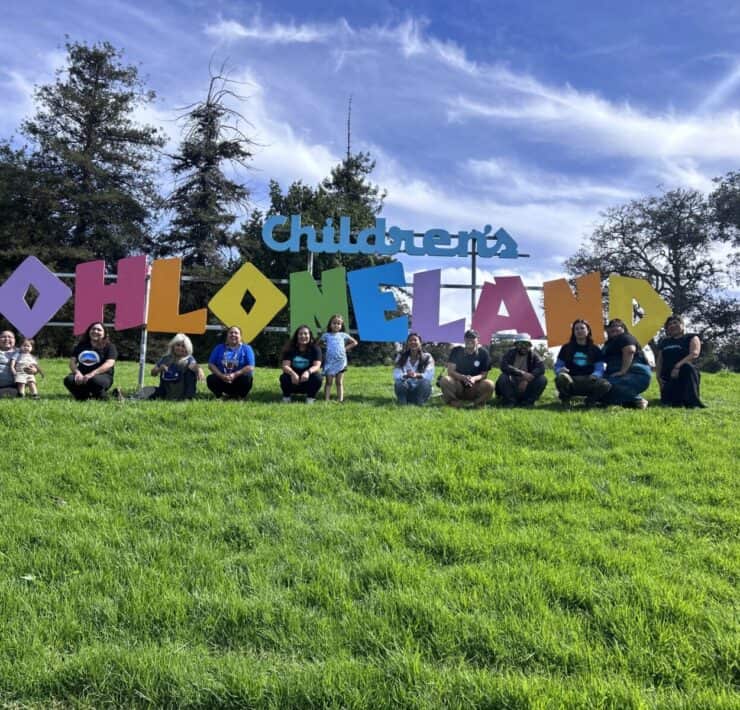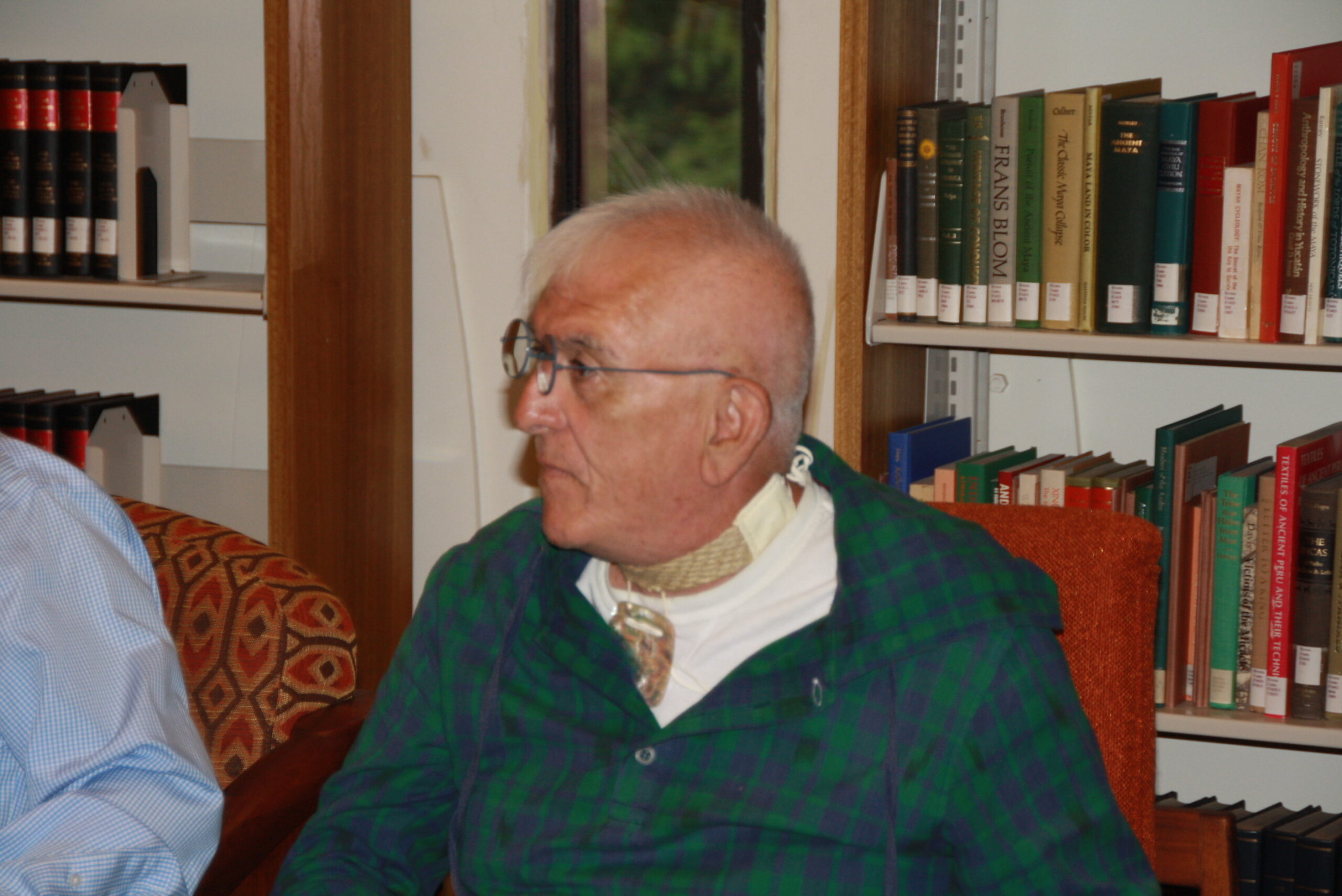
California Indians, Scholars have their say about Serra
By Terria Smith
The symposium “California Indians, Canonization of Junipero Serra, and Consequences of Colonialism” brought droves of guests to the University of California, Riverside (UCR) Costo Library on Friday, March 13. The volatile topic opened a spirited discussion across two panel sessions from California Indians, scholars and community members.
The event opened with words from Clifford Trafzer, distinguished professor at UCR and Rupert Costo Chair. Elder Henry James Vasquez followed by offering a flute song as invocation to honor the ancestors who were at the California missions.
I had the honor of moderating the morning session which welcomed Edward Castillo (Cahuilla/Luiseno), Andrew Galvan (Ohlone), Vincent Medina (Ohlone), Julia Bogany (Tongva), Michelle Lorimer (Cal State San Bernardino), Will Madrigal Jr. (Cahuilla), Jonathan Cordero (Chumash/Ohlone – Cal Lutheran University), George Phillips (University of Colorado), James Sandos (University of Redlands), Steve Hackel (UC Riverside) and James Fenelon (Lakota – Cal State San Bernardino).
The first panel discussion was primarily academic in nature. James Sandos brought up the historical record and how the impact of the missions on California Indian tribal people was not taken into account by the church when considering canonizing Serra. George Phillips concurred and stated that the entire process for sainthood is flawed.
Edward Castillo talked about how historically missions brought death, starvation and disease to California tribal people. While Jonathan Cordero, a sociologist, brought up matters to the present by pointing out that the missions continue to leave a legacy of poverty and invisibility for many California Indian people.
California Indian panelists Vincent Medina and William Madrigal Jr. both addressed the long-standing cultural impacts of the mission system, including loss of Native languages.
Not everyone on the panel, however, spoke out against the missions or canonization. Andrew Galvan took the opportunity to talk about how since 1978 he has been working towards the canonization of Serra. He also emphasized the fact that he would like to work with Catholic bishops across the state to look for ways that California Indian people could have more of an active role in the missions today.
UCR doctoral candidate Charles Anthony Sepulveda (Tongva/Juaneno-Acjachemen) moderated the afternoon panel. Guests for this session were Valentin Lopez (Amah Mutsun, tribal chair), Galene Townsend Miller (Pauite/Shononi), Sean Millanovich (Cahuilla), Robert Perez (Apache), Monica Archuletta (Jicarilla Apache/Luiseno/Juaneno), Meranda Roberts (Paiute), Charles Valenzuela (Luiseno), Robert Bracamontes (Juaneno/Ajachemen) and Charlene Ryan (Luiseno).
This session had a major emphasis on oral histories of historical trauma. During the panel Sean Millanovich shared a story of Cahuilla resistance to mission persecution of that passed down to him by Alvino Siva about pavuul Pedro Chino. Valentin Lopez shared accounts of how his ancestors suffered at the hands of the Spanish colonists and how his tribal people still suffer the impacts of missionization.
It was a powerful day. But for me, what resonated most about the symposium was the fact that I was able to witness the nature of intergenerational Native endurance.
Elder California Indian scholars, like Edward Castillo – who have dedicated themselves to studying and sharing our experiences – now have successors like Jonathan Cordero to carry the torch. Because of this, I know our voices will continue to be heard in academia and our history will continue to be perpetuated. Knowing this – as an educated California Indian woman – helps me to hold my head up high.
Photo caption: Professor Emeritus Edward Castillo (Cahuilla/Luiseno) has researched the impacts of Spanish colonization on California Native peoples and has long been an advocate against the canonization of Junipero Serra.
(Photo courtesy of Clifford Trafzer)
